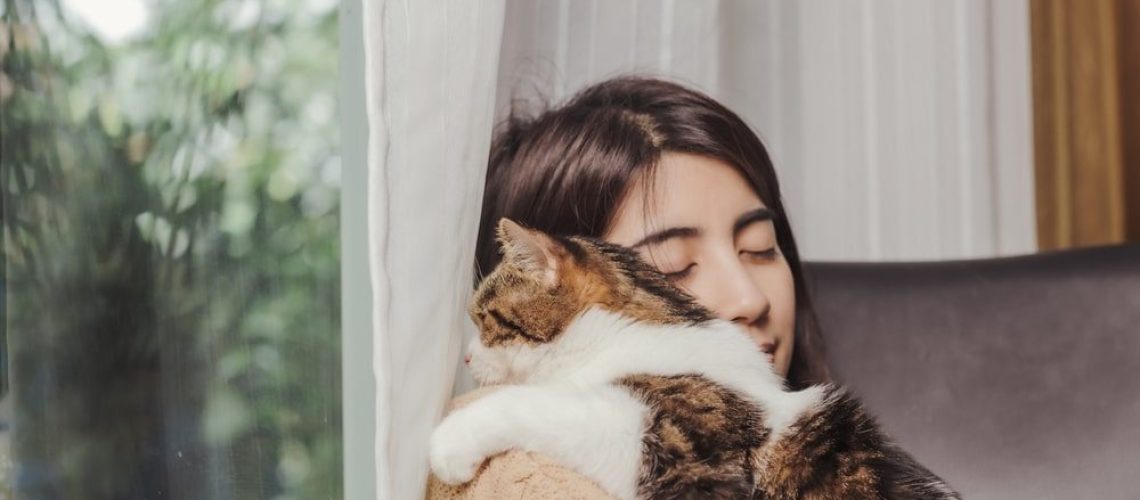Introduction:
Saying goodbye to a beloved furry friend can be one of the toughest experiences in life. Whether you're a cat lover or not, understanding when it's the right time to let go of your cat is an essential part of being a responsible pet owner. But why should you delve into this subject? Well, by exploring this topic, you'll gain valuable insights that can help you make informed decisions about your cat's well-being. Plus, knowing when to say goodbye can bring comfort and peace to both you and your furry companion. So, let's dive into the hardest goodbye and discover how to navigate this emotional journey with grace and love.
Key Takeaways:
- Knowing when to let go of your cat can be one of the hardest decisions you'll ever make.
- Consider your cat's quality of life and overall well-being when deciding if it's time to say goodbye.
- Consult with your veterinarian to get their professional opinion and guidance on when it may be appropriate to euthanize your cat.
- Remember that letting go of your cat is an act of love and compassion, as it allows them to be free from suffering.
- Grieving the loss of a pet is normal and it's important to give yourself time and space to mourn their passing.
Why Knowing When to Say Goodbye to Your Cat is Important
As a cat owner, it can be heartbreaking to think about saying goodbye to your furry friend. However, knowing when it's time to let go is crucial for their well-being. Cats, just like humans, can suffer from various illnesses and age-related issues that may cause them pain and discomfort. By recognizing the signs that indicate their suffering, we can make the difficult decision to say goodbye in order to prevent further pain.
Saying goodbye at the right time allows us to show our love and compassion for our cats by ending their suffering. It gives them a chance to pass away peacefully and without unnecessary pain. While it's never easy, making this decision is an act of kindness and a way to ensure their quality of life.
Recognizing Signs of Suffering in Cats
Cats are masters at hiding their pain, but there are certain signs that can indicate they are suffering:
- Loss of appetite or weight loss
- Lethargy or decreased activity levels
- Persistent vomiting or diarrhea
- Difficulty breathing or coughing
- Inability to urinate or defecate properly
- Visible signs of physical discomfort (limping, trembling)
Consulting with a Veterinarian
If you notice any of these signs in your cat, it's important to consult with a veterinarian. They will be able to assess your cat's condition and provide guidance on whether it's time to consider saying goodbye. Remember, veterinarians have the expertise and experience needed to make these difficult decisions based on what is best for your cat's well-being.
What Does Letting Go of Your Cat Mean?
Letting go of your cat means making the decision to end their suffering when they are in pain or experiencing a poor quality of life due to illness or old age. It involves choosing euthanasia, a humane and compassionate way to help your cat pass away peacefully and without further suffering.
Euthanasia is a medical procedure performed by a veterinarian. It involves administering medication that allows your cat to fall asleep painlessly and pass away peacefully. This procedure is quick and ensures that your cat does not experience any distress or discomfort during their final moments.
The Importance of Quality of Life
When considering letting go of your cat, it's important to prioritize their quality of life. Cats are highly sensitive animals, and they deserve to live without pain or suffering. If your cat's condition has deteriorated to the point where they are no longer able to enjoy activities they once loved or if they are constantly in pain, it may be time to consider saying goodbye.
Remember, letting go is not an easy decision, but it is an act of love and compassion for your beloved pet. By choosing euthanasia, you are ensuring that they do not endure unnecessary pain or discomfort.
Discussing Options with Your Veterinarian
If you're unsure about whether it's time to let go of your cat, consult with your veterinarian. They can provide guidance based on their professional expertise and help you make the best decision for your furry friend. Your veterinarian will take into account various factors such as the severity of the illness or condition, the potential for recovery or improvement, and the overall quality of life.
What Does Letting Go of Your Cat Mean?
Understanding the Emotional Process
Letting go of your cat can be an incredibly difficult and emotional experience. It means accepting that your beloved pet is nearing the end of their life and making the decision to end their suffering. This process involves a range of emotions, including sadness, guilt, and grief. It's important to recognize that these feelings are normal and valid. It's natural to feel a deep sense of loss when saying goodbye to a cherished companion.
Considering Quality of Life
Letting go of your cat also means considering their quality of life. As responsible pet owners, it is our duty to ensure that our pets are not suffering needlessly. When a cat is facing a terminal illness or experiencing chronic pain, it may be kinder to let them go peacefully rather than prolonging their suffering. Making this decision requires careful consideration and consultation with a veterinarian who can provide guidance based on the cat's condition.
Signs that Indicate it's Time to Let Go of Your Cat
Loss of Appetite and Weight Loss
One sign that it may be time to let go of your cat is if they have lost their appetite and are experiencing significant weight loss. Cats are known for being finicky eaters, but when they consistently refuse food or show no interest in eating, it could be an indication that they are in pain or discomfort.
Lack of Mobility and Decline in Activity Level
Another sign to watch for is a decline in your cat's mobility and activity level. If they are struggling to move around or no longer engage in activities they once enjoyed, it could mean they are experiencing pain or have lost their zest for life.
Other signs include:
- Difficulty breathing or persistent coughing
- Incontinence or inability to control bodily functions
- Visible signs of distress or discomfort
- Unresponsiveness or withdrawal from social interactions
Coping with the Difficult Decision of Saying Goodbye to Your Cat
Seeking Support from Loved Ones
When faced with the difficult decision of saying goodbye to your cat, it's important to lean on your loved ones for support. Share your feelings and concerns with family and friends who understand the bond you have with your pet. They can provide comfort and help you navigate through this challenging time.
Honoring Your Cat's Memory
One way to cope with the loss is by finding ways to honor your cat's memory. Create a memorial space in your home where you can display photos, their favorite toys, or even light a candle in their honor. Consider planting a tree or flowers in their memory as a lasting tribute.
Exploring Alternatives when Your Cat is Sick or Suffering
Palliative Care Options
If your cat is sick or suffering but not yet at the point where letting go is necessary, exploring palliative care options may be beneficial. Palliative care focuses on providing comfort and pain management for pets facing terminal illnesses. This could involve medication, specialized diets, or alternative therapies that aim to improve their quality of life.
Hospice Care for Cats
Hospice care for cats is another alternative worth considering when they are nearing the end of their life. Hospice care provides a supportive environment where cats can receive specialized attention and comfort during their final days. It focuses on ensuring they are as comfortable as possible while allowing them to live out their remaining time peacefully.
Can Reading "The Hardest Goodbye" Help with the Decision to Say Goodbye to Your Beloved Pet?
Exploring the Book's Insights
"The Hardest Goodbye" is a book that delves into the emotional journey of pet owners facing the difficult decision of saying goodbye. It offers personal stories, expert advice, and coping strategies to help navigate through this challenging time. Reading this book can provide comfort and reassurance, knowing that others have experienced similar emotions and decisions.
Gaining Perspective and Support
By reading "The Hardest Goodbye," you can gain valuable perspective on end-of-life decisions for pets. The book offers insights from veterinarians, grief counselors, and other pet owners who have gone through the same experience. It provides a sense of support and understanding, helping you make an informed decision while considering your cat's well-being.
Remember, letting go of your cat is an act of love and compassion. It's about prioritizing their comfort and quality of life above all else. Trust yourself to make the right decision for your beloved pet based on their individual circumstances.
In conclusion, saying goodbye to your cat can be one of the hardest things you'll ever do. But when their quality of life declines and they are suffering, it is important to make the tough decision to let them go with love and compassion.
How do you know when it's time to let go of your cat?
The time to consider euthanizing your cat is when your veterinarian has determined a terminal illness such as cancer or kidney failure and the cat's quality of life has significantly declined. This may be evident through dramatic weight loss, mobility issues, and ongoing breathing problems.
How do you say goodbye forever to a cat?
Create a small memorial in a room by placing a photo of the person and a lit candle. Write a farewell letter and bury it alongside them. Write a poem or short story reflecting on your time together. Seek support from others who have experienced a similar loss.
What are the last moments of a cat?
During the late stages of a cat's natural death without the use of medication, their breathing may become labored and they may seem like they are struggling for air. Their body temperature will start to decrease, and their paws may feel colder. Cats will usually be unable to move and will not have any desire to eat or drink.
Do cats know when you're gone for a long time?
Cats may not be aware of how long you leave them for, but they can sense when you're away. They can experience feelings of loneliness, boredom, and anxiety. Additionally, research suggests that smaller animals with faster metabolisms may have a different perception of time. Therefore, cats may perceive time in a different way than humans do.
Does my cat feel sad when I leave?
Do cats also get anxious when they are left alone? The simple answer is yes, cats can experience separation anxiety.
What are 4 signs your cat is suffering?
Signs that a cat is in pain include a decrease in interest in activities such as playing, socializing, and exploring outside. The cat may withdraw and hide, and may also appear to be limping or be more sensitive to touch in certain areas of their body. There may also be a reduction in their overall movement and activity levels.

















